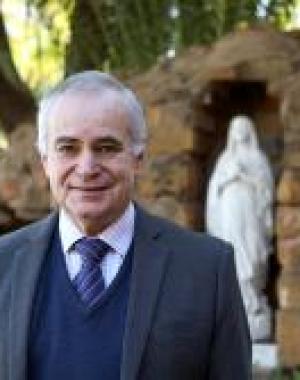“Lo, all things fly thee, for thou fliest Me!” (The Hound of Heaven, Francis Thompson)
Christian history is awash with the affirmation that human beings have been created to desire God, like the beautiful “cor inquietum” of St. Augustine: “You have made us for yourself O Lord, and our hearts are restless until they rest in you.” Since the sixteenth century, however, many academic philosophers have disputed this and have claimed that there is no evidence that human beings are “made for God.” I have no intention of entering into this controversy. Instead, I would like to draw attention to the insights of the saints and the teaching of the Church through the centuries. St. Thomas Aquinas expressed the same thought when he wrote, “Wherefore God alone can satisfy the will of man, according to the words of Ps 102… Therefore God alone constitutes man’s happiness;” and St. Francis de Sales wrote, “Thou hast made me, O Lord, for Thyself, to the end that I may eternally enjoy the immensity of Thy glory.” St. Alphonsus Ligouri had the same idea and worded it thus: “Eternal salvation… is the one and sovereign good of man, seeing that it is the one end for which he was created.” In our own time, the Catechism insists: “The desire for God is written in the human heart because man is created by God and for God… Only in God will he find the truth and happiness he never stops searching for.” We can therefore rely on this desire to draw our students to God. My experience also tells me we can. Before I say how, I need to offer some caveats: first, it is God, who draws his children to himself at his appointed time; second, the individual human being is always free to reject God’s invitation; moreover, the relationship between God and the individual soul can never be reduced to an automated mechanical response: love can only be love if it is freely given and freely accepted.
The rest of this online article is available for current Guild members.
This article is from The Catechetical Review (Online Edition ISSN 2379-6324) and may be copied for catechetical purposes only. It may not be reprinted in another published work without the permission of The Catechetical Review by contacting [email protected]


















